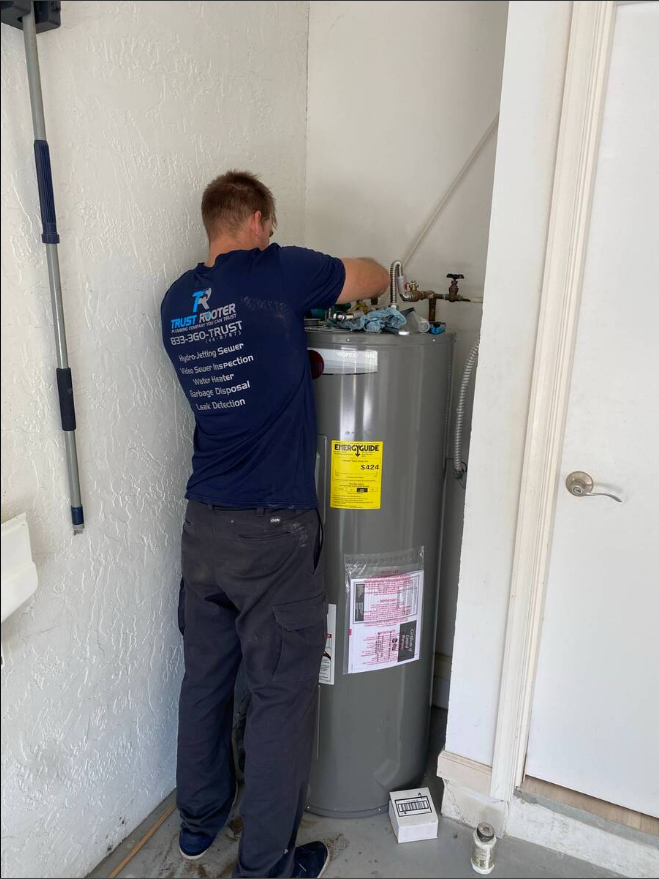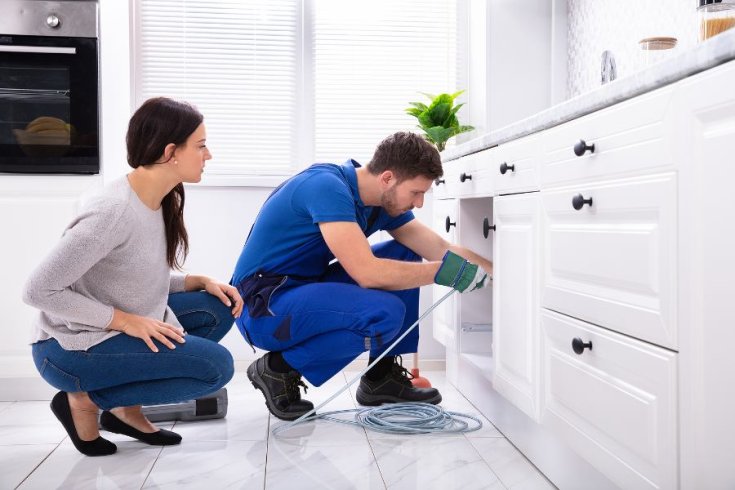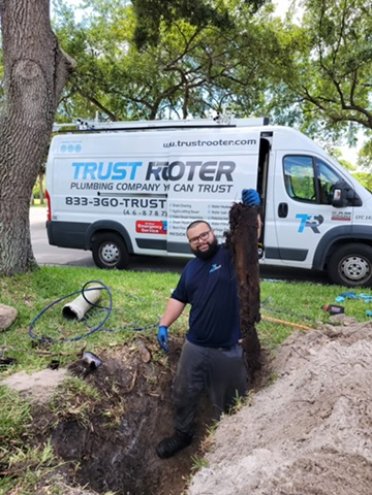If you're experiencing issues with your current water heater, it may be time to consider a water heater replacement. You'll need to assess your situation to determine the best course of action for your home's needs. You can start by looking for signs that your water heater is failing, such as leaks or inconsistent hot water, and then explore options for a new one, considering factors like energy efficiency and reliability.
Key Takeaways:
-
If you notice signs such as leaks, rust, or inconsistent hot water, it may be time to consider a water heater replacement to avoid further damage and inconvenience.
-
When choosing a new water heater, it's crucial to weigh the pros and cons of different options, including energy-efficient models and the choice between tank and tankless systems.
-
Engaging a professional for the replacement can provide benefits like fast installation and long-term reliability, ensuring you have a steady supply of hot water without interruptions or costly repairs down the line.
Unmistakable Signs Your Water Heater Needs to Go
Your water heater is showing signs of wear and tear, and you're wondering if it's time for a change. One of the most obvious indicators is the presence of leaks or rust on the unit. If you notice water pooling around the base of the heater or rust spots on the tank, it's likely that the internal lining has broken down, allowing water to seep in and cause damage. This can lead to further issues, such as mold growth, electrical hazards, and even a complete system failure.
Another sign that your water heater is on its way out is inconsistent hot water. If you're finding that the temperature is fluctuating wildly, or that you're running out of hot water mid-shower, it may be a sign that the heater is struggling to keep up with demand. This can be especially frustrating in larger households, where multiple people are relying on the same water heater to get ready in the morning. Considering a water heater replacement can help alleviate these issues and provide a more reliable source of hot water.
Detecting Leaks and Rust: What to Look For
Leaks can be sneaky, often hiding behind the water heater or under the floor, so it's necessary to keep an eye out for any signs of moisture. Check the area around the heater regularly for water spots, mineral deposits, or warping of the surrounding materials. Rust, on the other hand, can be more obvious, often appearing as reddish-brown stains on the tank or pipes. If you notice any of these signs, it's best to investigate further to determine the source of the issue.
Rust can also be a sign of a more significant problem, such as a faulty anode rod or a compromised tank lining. In these cases, replacing the water heater may be the most cost-effective solution in the long run. By catching these issues early, you can avoid more extensive damage and ensure a steady supply of hot water for your household.
Inconsistent Hot Water: The Red Flag You Can't Ignore
Inconsistent hot water can be a significant inconvenience, especially during peak usage hours. If you're finding that the water temperature is fluctuating wildly, or that you're running out of hot water mid-shower, it may be a sign that the heater is struggling to keep up with demand. This can be especially frustrating in larger households, where multiple people are relying on the same water heater to get ready in the morning. By paying attention to these signs, you can identify potential issues before they become major problems.
For instance, if you have a large family and your water heater is over 10 years old, it may be struggling to meet the increased demand. In this case, considering a replacement can help ensure that everyone has access to hot water when they need it. Additionally, newer models are often more energy-efficient, which can help reduce your utility bills and minimize your environmental impact. By addressing inconsistent hot water issues promptly, you can enjoy a more comfortable and convenient home life. Furthermore, ignoring these signs can lead to more severe consequences, such as a complete system failure, which can result in costly repairs and even property damage, so it's necessary to take action as soon as you notice any inconsistencies in your water heater's performance.
Evaluating Your Options: What to Consider in a Replacement
As you consider a water heater replacement, you'll want to think about the type of system that will best meet your needs. Your current water heater may have been sufficient when you first installed it, but your household's requirements may have changed over time. For instance, if you've added more family members or installed new appliances, your hot water demands may be higher. You can explore options for a new water heater by visiting water heater replacement services, which can help you determine the best course of action.
Your budget and personal preferences will also play a significant role in your decision. You may be looking to reduce your energy bills or minimize your environmental impact. Alternatively, you might prioritize having a constant supply of hot water or require a system that can handle high demand. Whatever your priorities, there are various options available to suit your needs.
The Case for Energy-Efficient Models: Saving Money and the Environment
Energy-efficient models can help you save money on your utility bills and reduce your carbon footprint. These systems use less energy to heat water, which can lead to significant cost savings over time. For example, a heat pump water heater can be up to 3 times more efficient than a traditional electric water heater. Additionally, many energy-efficient models are eligible for rebates and tax credits, which can help offset the initial cost of installation.
Some energy-efficient models also come with advanced features, such as smart sensors and remote monitoring. These features allow you to track your energy usage and adjust your settings to optimize your system's performance. By investing in an energy-efficient model, you can enjoy long-term savings and contribute to a more sustainable future.
Tank vs. Tankless Systems: Which Fits Your Needs Best?
Tank and tankless systems have distinct advantages and disadvantages. Tank systems are often less expensive to install and can provide a large volume of hot water. However, they can be less efficient and may run out of hot water during periods of high demand. Tankless systems, on the other hand, heat water only as needed, which can be more efficient and provide a constant supply of hot water.
Tankless systems are also generally more compact and can be installed in smaller spaces. However, they can be more expensive to install and may require more complex maintenance. You'll need to consider factors such as your household's size, hot water usage, and available space to determine which type of system is best for you.
For instance, if you have a large household with multiple bathrooms, a tank system may be more suitable to meet your hot water demands. On the other hand, if you live in a small apartment or condo, a tankless system could be a better fit due to its compact size and energy efficiency. By weighing the pros and cons of each option, you can make an informed decision that meets your unique needs and preferences.
The Perks of Professional Installation: Why DIY Isn’t Always the Best Route
As you consider a water heater replacement, you're likely weighing the pros and cons of handling the installation yourself versus hiring a professional. While DIY projects can be cost-effective, they often come with hidden risks and potential pitfalls. Your safety and the longevity of your new water heater are at stake, making it crucial to carefully evaluate your options. A professional installation can provide you with peace of mind, knowing that the job is done correctly and efficiently.
By hiring a professional, you can ensure that your new water heater is installed correctly, and you can take advantage of their expertise to choose the best system for your needs. For instance, you can visit water heater replacement services to get a professional assessment and installation. This not only saves you time but also guarantees that the installation is done safely and in compliance with local regulations.
The Advantage of Fast, Expert Installation
Professional installers have the training and experience to complete the job quickly and efficiently, minimizing the disruption to your daily routine. They can also help you navigate the various options available, from energy-efficient models to tankless systems, to find the best fit for your home and budget. With their expertise, you can rest assured that your new water heater is installed correctly, and you can enjoy the benefits of a reliable and efficient system.
Furthermore, professional installers typically offer warranties and guarantees on their work, providing you with added protection and peace of mind. This means that if anything goes wrong with the installation, you can rely on them to fix the issue promptly and at no extra cost to you. By choosing a professional installation, you can enjoy the benefits of a hassle-free experience and focus on more important things.
Long-Term Reliability: The Hidden Cost of DIY Mistakes
While DIY installations may seem like a cost-effective option, they can often lead to hidden costs and potential safety hazards. A single mistake can result in a faulty installation, leading to reduced efficiency, increased energy bills, and even safety risks. For example, a improperly installed water heater can lead to scalding temperatures, leaks, or even explosions, putting you and your family at risk.
In addition to the safety risks, DIY mistakes can also lead to premature wear and tear on your new water heater, reducing its lifespan and requiring costly repairs or even replacement. By choosing a professional installation, you can avoid these risks and enjoy the benefits of a reliable and efficient system, saving you money and hassle in the long run. With a professional installation, you can have confidence in the quality of the work and enjoy the peace of mind that comes with knowing your new water heater is installed correctly.
Moreover, the cost of repairing or replacing a faulty DIY installation can be substantial, often outweighing any initial savings. In fact, according to industry estimates, a professional installation can save you up to 20% on your energy bills and extend the lifespan of your water heater by up to 5 years. By investing in a professional installation, you can enjoy the benefits of a reliable and efficient system, while also saving money and reducing the risk of costly repairs or replacement.
Financial Implications: What a Water Heater Replacement Really Costs
Your decision to replace your water heater will undoubtedly be influenced by the financial implications. A water heater replacement can be a significant investment, with costs ranging from $800 to $2,500 or more, depending on the type and quality of the unit. You'll need to consider not only the upfront cost but also the long-term savings and potential returns on investment. For instance, energy-efficient models may cost more initially but can save you up to $100 per year on your utility bills.
As you weigh your options, you'll want to think about your current water heater's performance and how a new one can impact your daily life. If your existing unit is old and inefficient, it may be costing you more in energy bills than you realize. By replacing it with a newer, more efficient model, you can enjoy significant savings over time. Additionally, some utility companies offer rebates and incentives for homeowners who install energy-efficient water heaters, which can help offset the initial cost.
Initial Investment vs. Long-Term Savings
You'll need to balance the initial investment in a new water heater with the potential long-term savings. For example, a tankless water heater may cost more upfront than a traditional tank-style unit, but it can last up to 20 years or more, compared to the 10-15 year lifespan of a traditional unit. This means you'll need to replace the tankless unit less often, resulting in lower overall costs over the long term. You'll also want to consider the cost of maintenance and repairs for your current unit, as these can add up quickly and may be avoided with a new, more efficient model.
As you consider your options, you may want to think about your plans for your home. If you're planning to sell your home in the near future, a new water heater can be a major selling point, as it can provide potential buyers with peace of mind and lower energy bills. On the other hand, if you're planning to stay in your home for the long haul, a more efficient water heater can provide you with years of reliable service and significant energy savings.
Understanding Warranties and Lifespan Expectations
When opting for a new water heater, you'll want to carefully review the warranty and lifespan expectations. Most manufacturers offer warranties ranging from 5-12 years, depending on the type and quality of the unit. You'll want to look for a unit with a comprehensive warranty that covers parts and labor, as well as a manufacturer with a reputation for producing reliable, long-lasting products. Additionally, you'll want to consider the expected lifespan of the unit, as this can impact your long-term costs and savings.
For instance, a water heater with a 12-year warranty and an expected lifespan of 15-20 years can provide you with years of trouble-free service and lower energy bills. You'll also want to review the maintenance requirements for the unit, as some models may require more frequent maintenance than others. By carefully reviewing the warranty and lifespan expectations, you can make an informed decision and choose a water heater that meets your needs and budget.
Conclusion
As a reminder, you've been considering whether it's time to upgrade your current water heating system. You've taken the time to assess the signs that your water heater is failing, such as leaks, rust, and inconsistent hot water. You've also weighed the options for choosing a new water heater, including energy-efficient models and the decision between tank and tankless systems. Now, it's time to take the next step and consider a water heater replacement to ensure you have a reliable plumber and efficient system in your home.
As you move forward, you'll want to consider the benefits of hiring a professional to handle the installation. With their expertise, you can expect fast installation and long-term reliability, giving you peace of mind and allowing you to enjoy consistent hot water without worrying about your system failing. You'll be able to select the best option for your needs, and with the right installation, trust rooter plumbing that your new system will provide you with years of reliable service. By taking the time to assess your needs and choose the right system, you'll be able to enjoy the comfort and convenience of a well-functioning water heater, and you can trust that you've made an informed decision for your home.
FAQ
Q: What are the signs that indicate my water heater is failing and needs to be replaced?
A: There are several signs that indicate your water heater is failing, including leaks or rust, inconsistent hot water, and old age. If you notice any of these signs, it may be time to consider a water heater replacement. Leaks or rust can cause significant damage to your home and lead to costly repairs, while inconsistent hot water can be a sign of a malfunctioning heating element or thermostat.
Q: What factors should I consider when choosing a new water heater?
A: When choosing a new water heater, there are several factors to consider. Energy-efficient options can help reduce your energy bills and minimize your environmental impact. You should also consider the type of system that best suits your needs, such as a tank or tankless system. Tankless systems provide hot water on demand, while tank systems store hot water in a tank for later use. Additionally, consider the size of the unit, the fuel type, and the warranty offered by the manufacturer.
Q: What are the benefits of hiring a professional for water heater installation and maintenance?
A: Hiring a professional for water heater installation and maintenance offers several benefits, including fast installation, long-term reliability, and improved safety. Professional plumbers in Oakland Park, FL can install your new water heater quickly and efficiently, minimizing downtime and ensuring that the job is done correctly. They can also provide maintenance and repair services to ensure your water heater continues to function properly over time, reducing the risk of leaks, rust, and other issues. With professional installation and maintenance, you can enjoy reliable and efficient hot water for years to come.



 Jun 30,2025
Jun 30,2025


